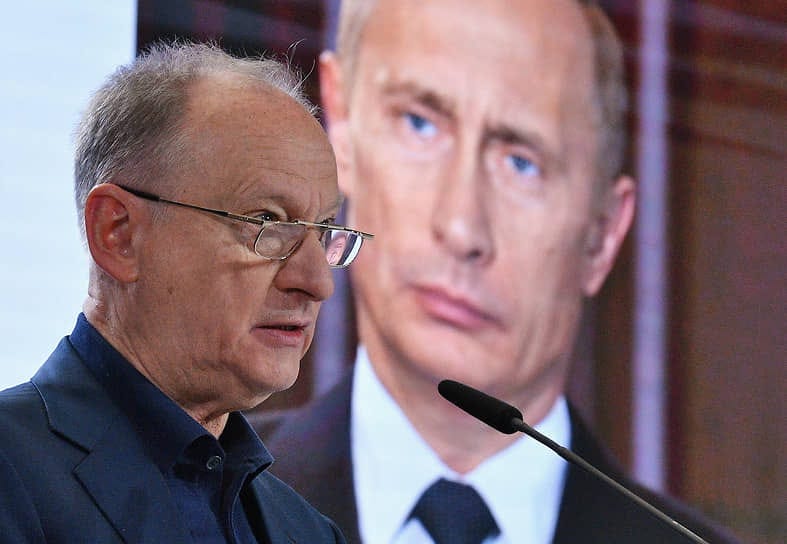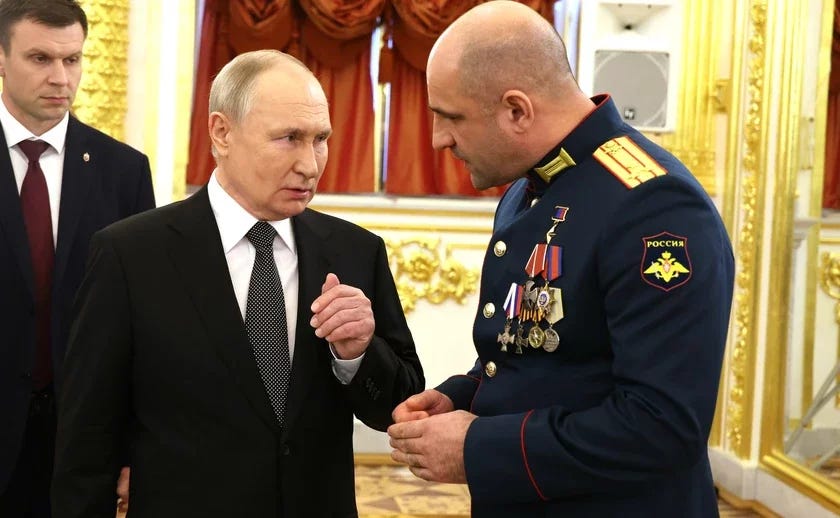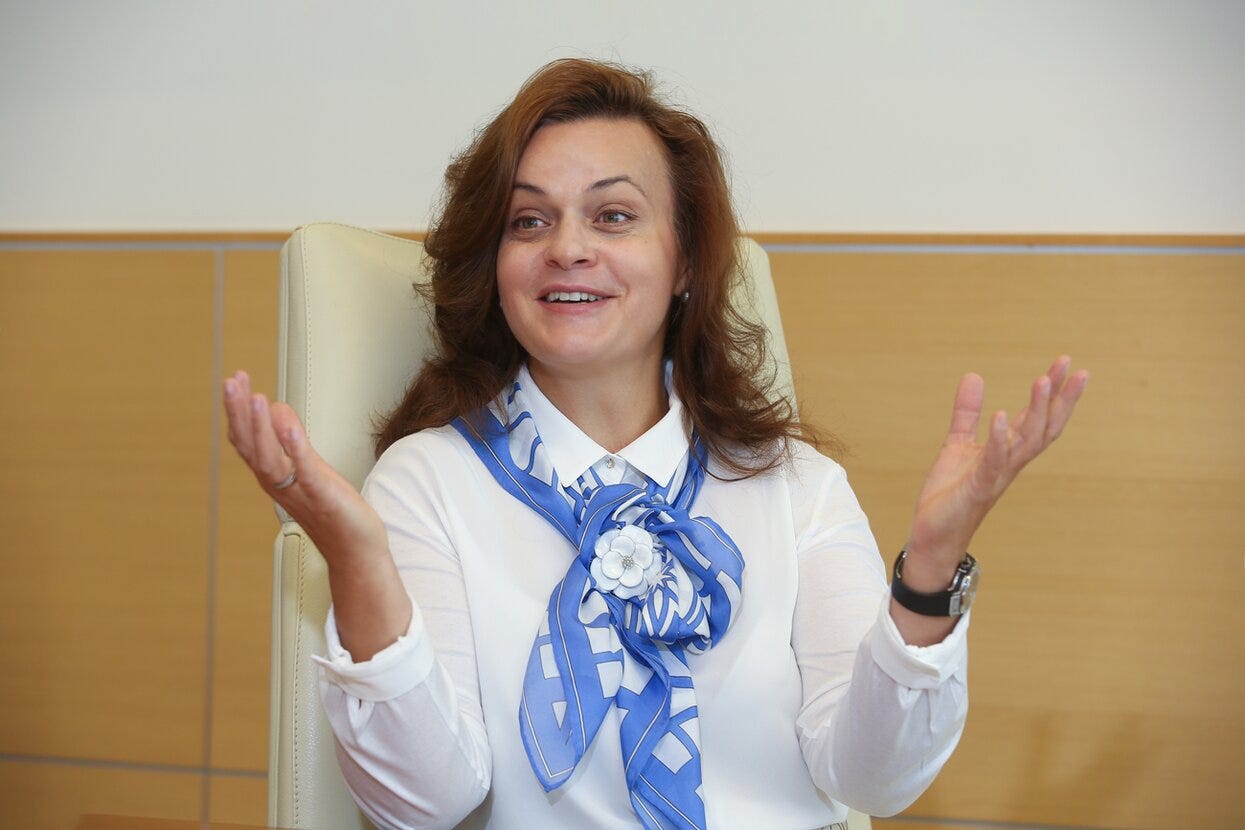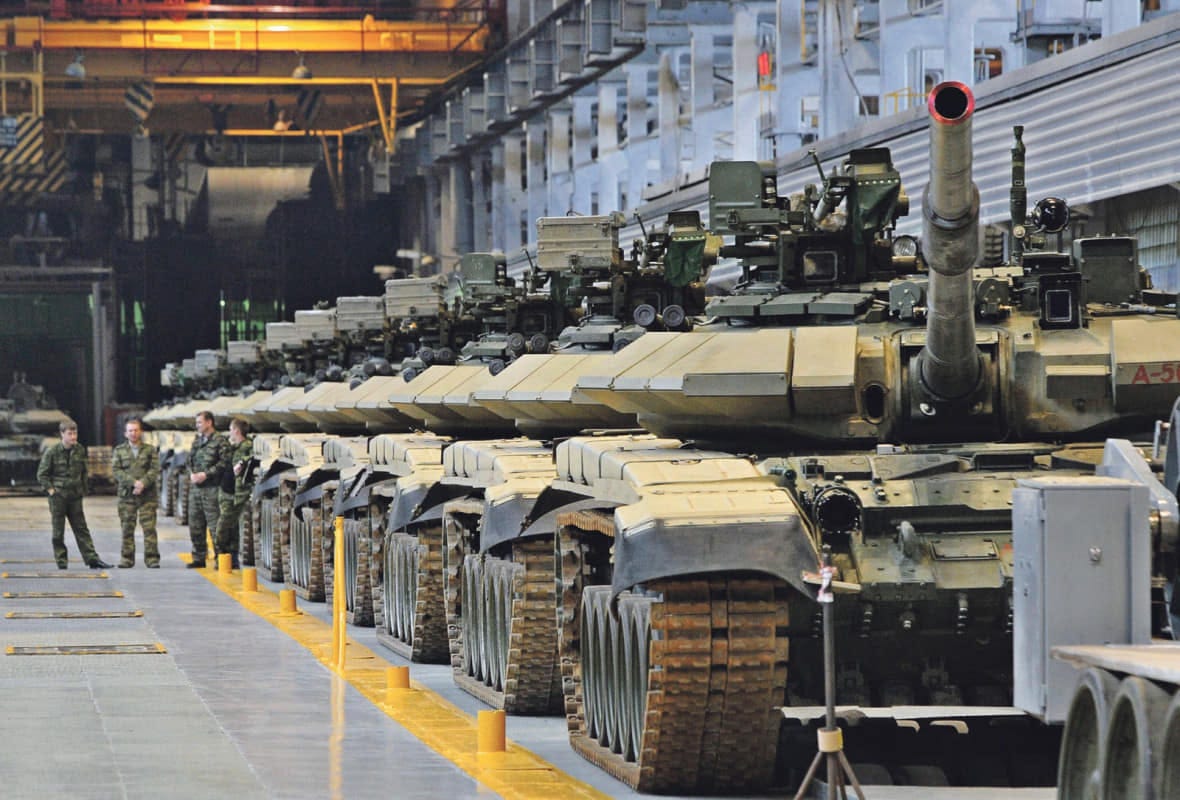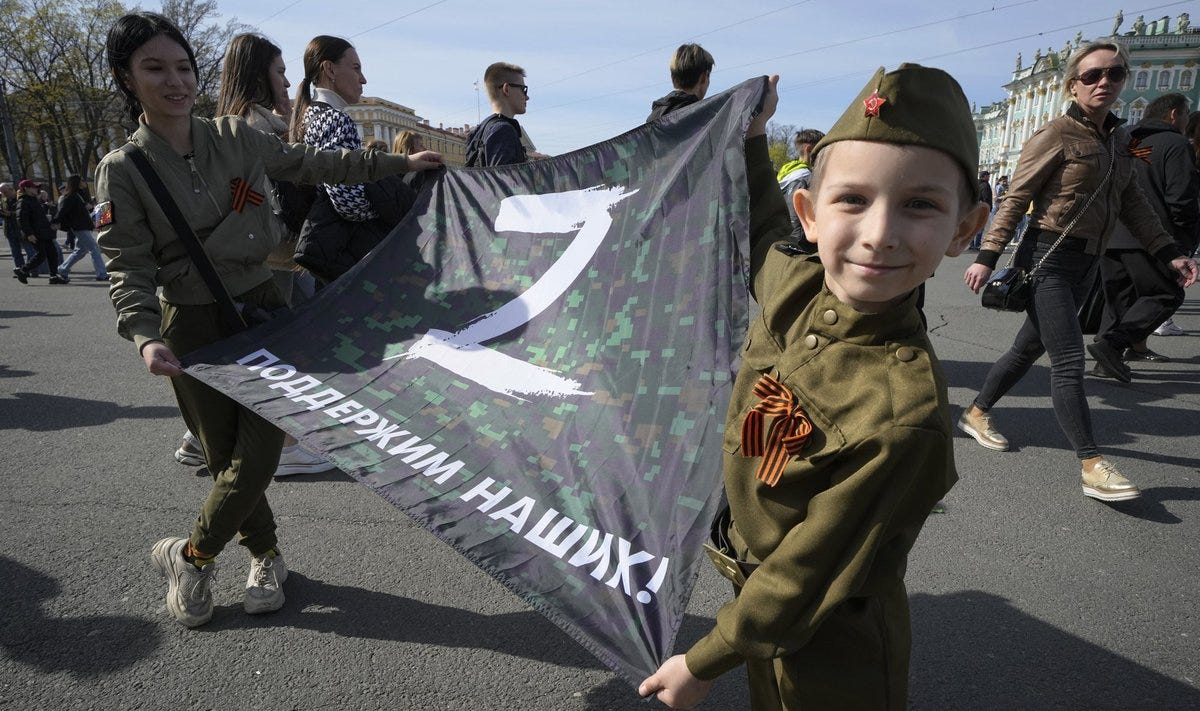Tsardom 2024: Putin’s Year in Review
Winners, Losers, the Battle Against Abortion, and a Disabled Tesla
Loser of the Year
The biggest trend in Russian politics is that Putin has finally started sending his second-tier old guard into retirement. It’s a long, messy, and frankly terrifying process, but it’s clearly underway. The first domino fell right after his inauguration when he sent Nikolai Patrushev, the former head of the FSB and a man once considered the most influential KGB veteran in Russian leadership, packing. Patrushev was often hyped up as a “shadow president,” which, let’s be real, was always a major overstatement.
After the May inauguration, Patrushev was shuffled off to a cushy retirement gig as the president’s adviser on shipbuilding—a role so ceremonial it might as well come with a complimentary set of knitting needles. Patrushev, however, hasn’t fully accepted his fate. He’s trying to cling to relevance, occasionally flexing his “strategic” muscles. Case in point: after the U.S. presidential election, he gave a sensational interview to Kommersant where he dramatically predicted that Donald Trump might be assassinated if he doesn’t follow through on promises made to mysterious forces that supposedly helped him become president. Bold words for someone now tasked with overseeing Russia’s future in boat-making.
But the reality? Patrushev no longer has any sway over the Russian political elite. His son Dmitry, now a deputy prime minister, is the price Putin paid for a smooth, drama-free retirement for his old comrade.
This marks a clear shift in Putin’s personnel strategy: he’s slowly moving his aging friends off the chessboard and onto ceremonial, cushy sidelines. It’s a little funny because it’s almost the opposite of Stalin’s end-of-life personnel policy. Stalin, in his final years, was plotting to purge his old comrades—Molotov, Mikoyan, and Voroshilov—only to have his sudden death save them from disgrace and execution. Putin, on the other hand, isn’t planning any dramatic betrayals. Quite the opposite—he’s promising his aging buddies a golden parachute into comfortable retirement, complete with fancy titles, fat paychecks, and a well-deserved rest.
Meanwhile, on the key government positions, Putin is stacking the deck with faceless technocrats: obedient yes-men who never voice their own opinions and seem to hold an almost religious belief in his infallibility. The new stars of the Russian political elite include people like new Defense Minister Andrey Belousov, Putin’s former bodyguard and now adviser Alexey Dyumin, and Presidential Administration head Anton Vaino.
Man of the Year
The clear winner of this year? Ramzan Kadyrov. He pulled off a triumphant comeback into the Russian political elite. At the beginning of the year, everyone was convinced his health was so dire that he was either about to die or step down. Many expected Putin to replace him, as it seemed Kadyrov simply couldn’t continue in his role. Putin even went as far as hosting Kadyrov’s underage son in the Kremlin to signal that, come what may, he intended to keep the Kadyrov dynasty in power.
But not only did Kadyrov recover, he managed to position himself as one of the biggest beneficiaries of the year, expanding both his business empire and his influence as a key player in Russia’s foreign policy.
Kadyrov’s personal army has nearly tripled in size since the start of the full-scale war in Ukraine.
His business empire has grown even faster. Last year, for example, it was revealed that Kadyrov’s family gained control over assets of the French company Danone after its exit from Russia. This year, an investigation by the independent Russian media reported that 17 enterprises on Russian-occupied territories in Ukraine are connected to Kadyrov. Since the invasion began, figures tied to Chechnya have taken over or gained shares in companies across Donetsk, Luhansk, Zaporizhzhia, and Kherson regions. These include a metallurgical plant in Mariupol, construction and agricultural firms, and metal processing companies. Additionally, a payment system linked to Chechen business interests is operating in the occupied territories.
What’s more, Kadyrov has become the ultimate role model for Russian officials and businessmen. He’s a PR genius, and everyone wants to emulate him. A textbook example happened in August: Kadyrov claimed Elon Musk gifted him a Tesla Cybertruck. He even posted a video on his Telegram channel showing the car outfitted with a machine gun, thanking Musk and inviting him to Grozny. Kadyrov also claimed the truck had already seen action on the battlefield.
But soon, the truth came out—it was a joke. Kadyrov had simply purchased the car, which was later remotely disabled. Kadyrov responded with characteristic flair: “Not cool, Elon Musk. Giving expensive gifts from the heart and then turning them off remotely—very ungentlemanly.”
Now, according to sources, Kadyrov has been offered a new deal. Throughout the year, he has aggressively sought control over Wildberries, Russia’s largest e-commerce platform. I’ve written about this before—the Wildberries conflict has been one of the year’s biggest business disputes in Russia. It seems Kadyrov may emerge victorious, despite having no initial connection to the company. Sources suggest that Kadyrov has been offered the chance to earn control over Wildberries by brokering deals with Syria’s new leadership.
Just a few days ago, Kadyrov received yet another Order “For Merit to the Fatherland” from Putin in the Kremlin. During this meeting, Putin and Kadyrov reportedly discussed leveraging Kadyrov’s Middle Eastern contacts, with Kadyrov taking on a role as a mediator between the Kremlin and the group Hayat Tahrir al-Sham.
Menace of the Year
The looming phenomenon that everyone in Russian elite is bracing for—and dreading—is the rise of a new class of war veterans and their associates. Russian businessmen are terrified that these battle-hardened individuals will soon start making demands. Picture this: veterans returning from the frontlines and insisting they deserve positions of power, key posts, or outright ownership of major enterprises. The prospect of these assertive, combat-experienced figures from the Donbas storming into the halls of power has the business elite breaking out in a cold sweat.
So far, though, there’s little evidence of this actually happening. The only notable example is one Artem Zhoga, a former soldier from the Donetsk region and the father of a legendary field commander who died in 2022. This year, Zhoga found himself in the spotlight as part of a well-orchestrated political maneuver. He was chosen for the highly symbolic task of publicly asking Putin to run for president again. The message was clear: as a representative of the Donetsk elite, Zhoga carries weight in Putin’s world and is meant to be held in high regard.
Following the elections, Zhoga did see a career boost—if you can call it that. He was appointed as the presidential envoy to the Urals. Now, let’s be honest: this isn’t exactly a power position. Envoy roles are where Putin places people who need a ceremonial pat on the back but aren’t expected to influence politics or business in any meaningful way. It’s essentially a golden handshake with a fancy title.
Woman of the Year
In a twist no one quite expected, Putin carried out a sweeping purge of the Ministry of Defense, dismissing Minister Sergey Shoigu and all his deputies. Dozens of generals lost their positions, and some even found themselves facing trial. Logically, one might think Putin would replace them with battle-hardened veterans, perhaps members of the much-dreaded Donetsk clan that has Moscow so on edge. But no—what actually happened was the complete opposite.
The new face of the Ministry of Defense? None other than Putin’s own niece, Anna Tsivileva. She now oversees all the funds allocated to help veterans, wounded soldiers, and the families of those killed in the war. And we're talking billions. All of these resources are managed by Putin’s dear niece.
Previously, she unofficially managed these budgets as head of the state fund Defenders of the Fatherland. In May, however, she received an official promotion, taking on the role of Deputy Minister of Defense. This essentially cements Tsivileva as Russia’s undisputed “Woman of the Year.”
But Anna didn’t stop at securing her own promotion. She also paved the way for her husband’s career boost. Earlier this year, he was the governor of the Kemerovo region—a key coal-mining hub in Eastern Siberia. Now? He’s been upgraded to Minister of Energy in the new government. It's not just power consolidation; it's practically a family business.
Hope of the Year
When it comes to how Putin feels about the upcoming year, it’s really not that complicated. He’s waiting for Trump. Every single hope of the Russian political elite is pinned on the new U.S. president. In fact, Trump is practically seen as the mascot for the end of the old world order and the demise of the liberal democratic ideology.
Trump showing up in the White House—with Elon Musk presumably hanging around nearby—is viewed as a golden opportunity to build some kind of brand-new world, one based on completely different values. Most likely, this new world will revolve around pure business and unadulterated capitalism, stripped of any pesky ideological baggage. No woke agenda, no obsessive human rights chatter, none of that other stuff that makes Putin and his Global South buddies roll their eyes so hard they can see their own brains.
From Trump, Putin is expecting the dawn of a shiny new era with brand-new rules. And for that reason, it’s painfully obvious that he’s bending over backward to avoid burning any bridges with Trump ahead of time. Take, for example, Biden’s decision to let Ukraine use long-range weapons on Russian territory. Putin’s reaction? Not much. Why? Because he’s genuinely counting on Trump to swoop in and undo that decision.
To Putin, this looks like nothing more than the last gasps of the Democratic administration. And he’s more than happy to sit tight and wait patiently until the inauguration rolls around.
Putin and Christmas Gifts (of Death)
When it comes to the economy, the big takeaway from the past year is this: rumors of the Russian economy’s inevitable demise have been greatly exaggerated. Sure, inflation is climbing and has become the number-one headache for ordinary Russians. But, oddly enough, according to business folks still operating in Russia, real incomes are actually growing. Why? Because money is trapped inside the country. Western banks won’t let it leave, so instead, it’s getting dumped into weapons production. And that cash flow is trickling down to Russians employed in the military-industrial complex. Consumption is growing faster than production, lending is on the rise, and unemployment is virtually nonexistent.
This has led to a fascinating development in Russia itself. Before the full-scale invasion of Ukraine, the country was grappling with massive social inequality: Moscow, St. Petersburg, and a few other big cities were living the high life, while smaller towns were scraping by on a diet of hopelessness and instant noodles. But now? Things are leveling out. All those decrepit Soviet-era defense plants that looked like they hadn’t seen a day of work since the glory days of the USSR are roaring back to life.
Turns out, the cursed legacy of the Soviet militarized economy was never really defeated—it was just napping. And strangely enough, for today’s Russians, this isn’t such a bad deal. At long last, people who hadn’t seen a ruble’s worth of prosperity in decades are finally getting a slice of the pie, even if it’s a pie baked in the fires of perpetual war.
Putin has completely overhauled Russia’s economic playbook. Forget growth, innovation, or any of that boring capitalist nonsense. The Russian economy now has one purpose and one purpose only: war. It’s like Stalin’s old rallying cry—“Everything for the front, everything for victory!”—got pulled out of the mothballs and slapped onto a 21st-century poster.
In Putin’s government, there’s not even a token first deputy prime minister for the economy anymore. Why bother? These days, everyone’s job boils down to cranking out weapons, propping up the military-industrial complex, and making sure the frontlines are well-stocked with gear. Forget GDP or living standards—the only metrics that matter now are tanks, missiles, and how fast they can get shipped out to the battlefield.
That said, by the end of the year, the ruble took a nosedive against the dollar. However, this hasn’t significantly affected the daily lives of ordinary Russians, as the dollar has effectively disappeared from circulation in Russia. With almost no connections left to the West, dollars have become a thing of the past for the average citizen.
Trend of the Year
The defining phenomenon of the past year? Kids. Sources say Putin has suddenly developed a deep fondness for children. Perhaps it’s connected to his own growing brood with Olympic champion Alina Kabaeva. But more likely, it ties into his vision of the "right" demographic policy for Russia. Putin wants women to produce more soldiers and for Russia’s population to grow. Not just any population, though—he’s fixated on increasing the number of ethnic Russians, not representatives of other nationalities. This has become his new idée fixe.
This obsession has fueled a massive propaganda campaign, including a highly visible crusade against abortion. It’s also spawned bizarre initiatives like proposals to legally ban the Child-Free movement. Just weeks ago, a popular actor was targeted with legal action for speaking positively about divorce. His remarks were deemed an affront to “family values,” which have now been enshrined in Russian state policy.
Anything that stands in the way of childbirth is now seen as a threat to the nation. And the overlap between this stance and parts of the American political agenda is, for Putin, a delightful bonus. It gives him something else to bond over with Trump besides Ukraine—now they can discuss abortion policy.





